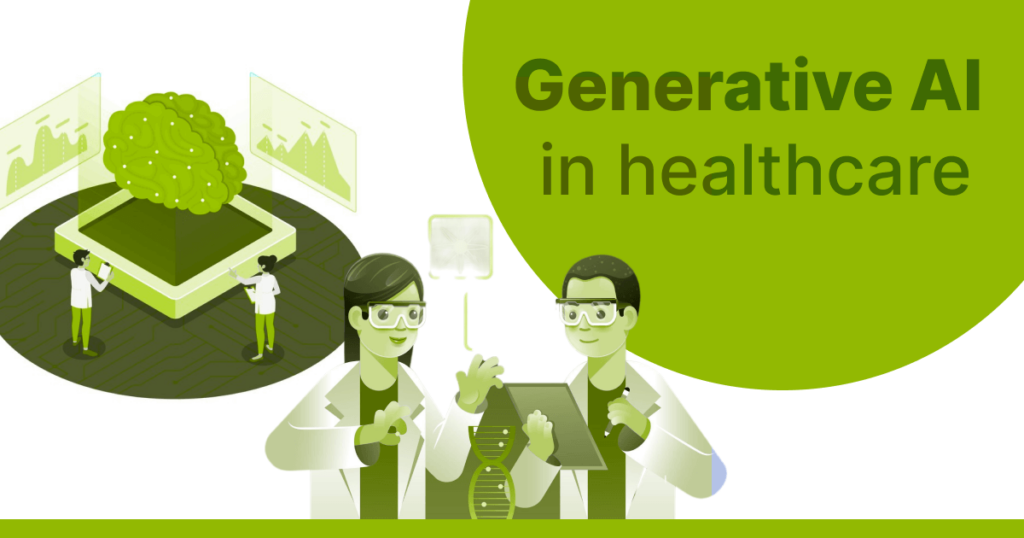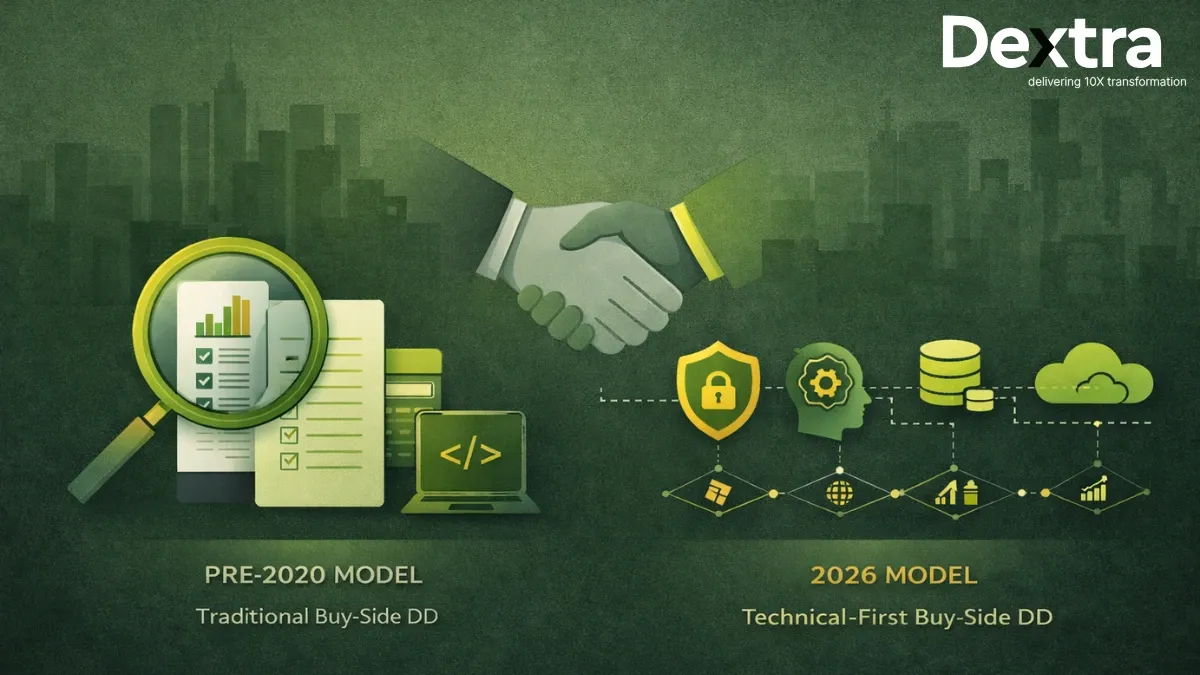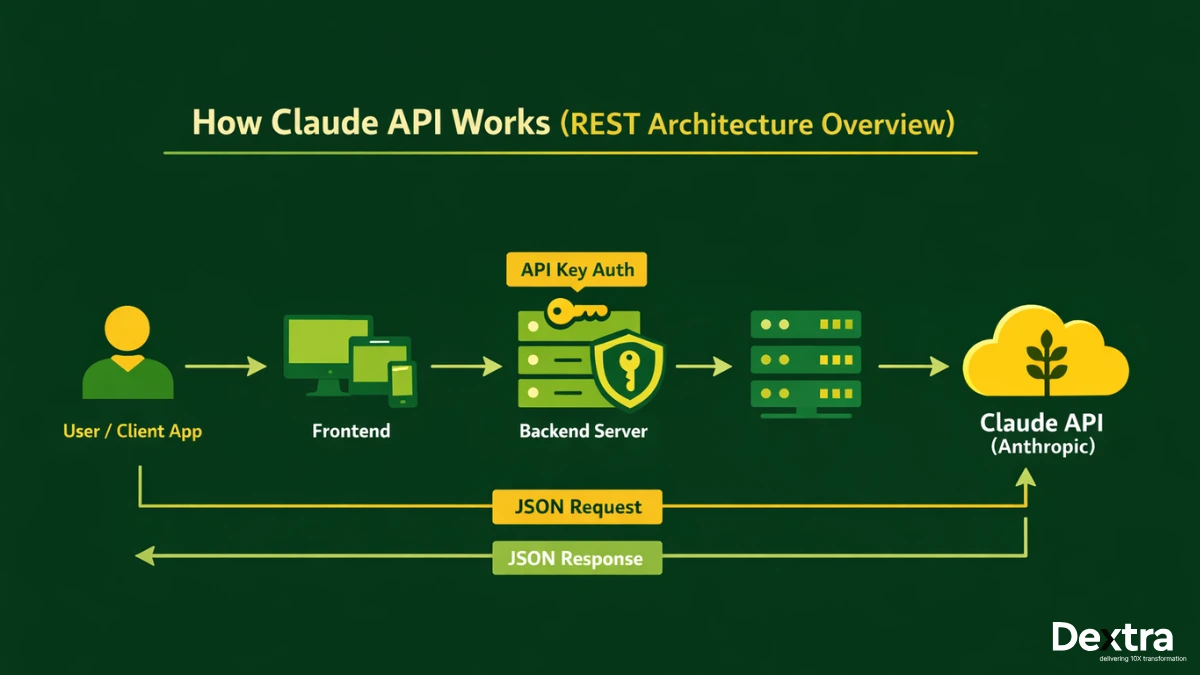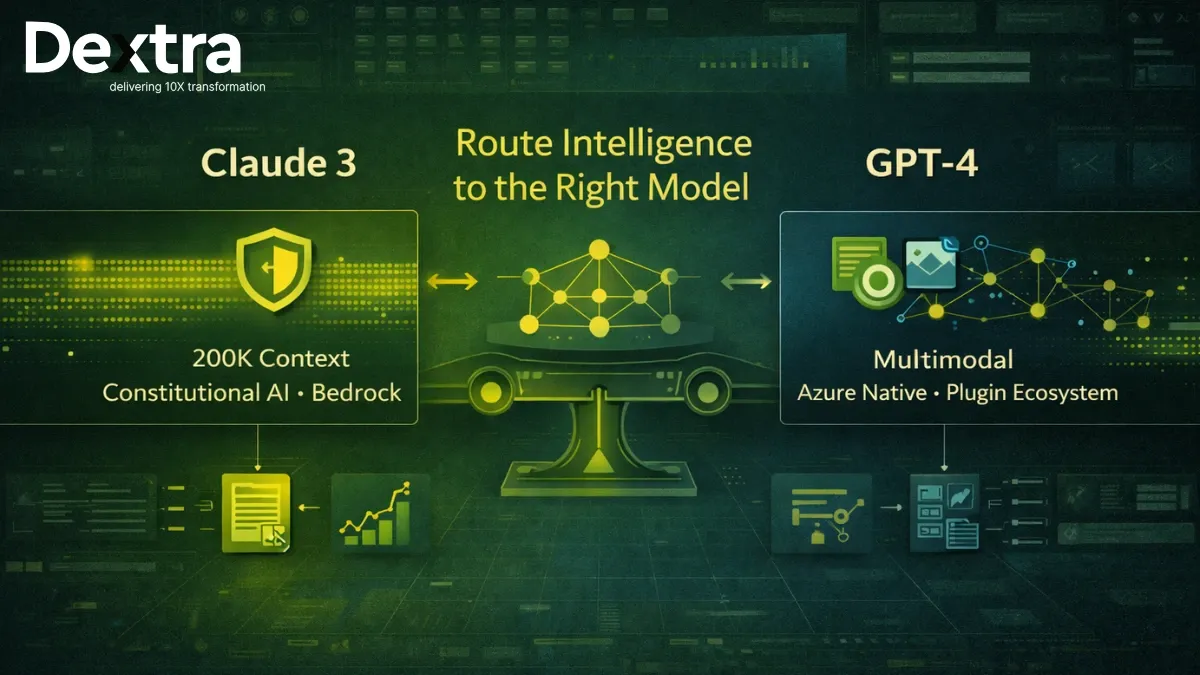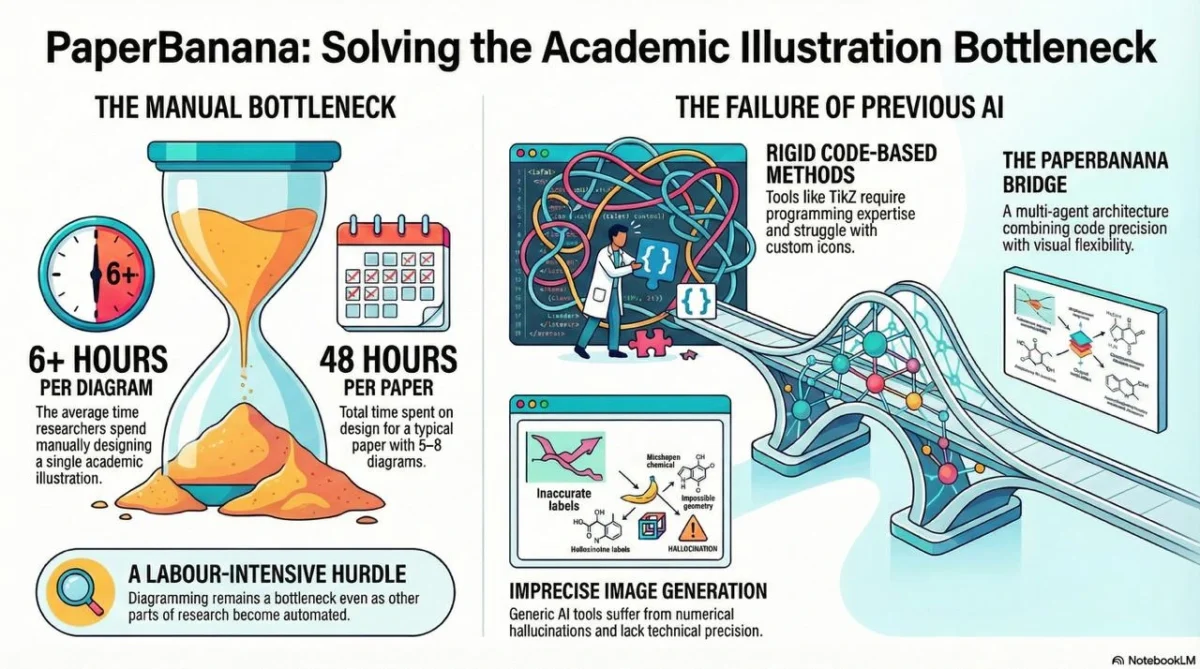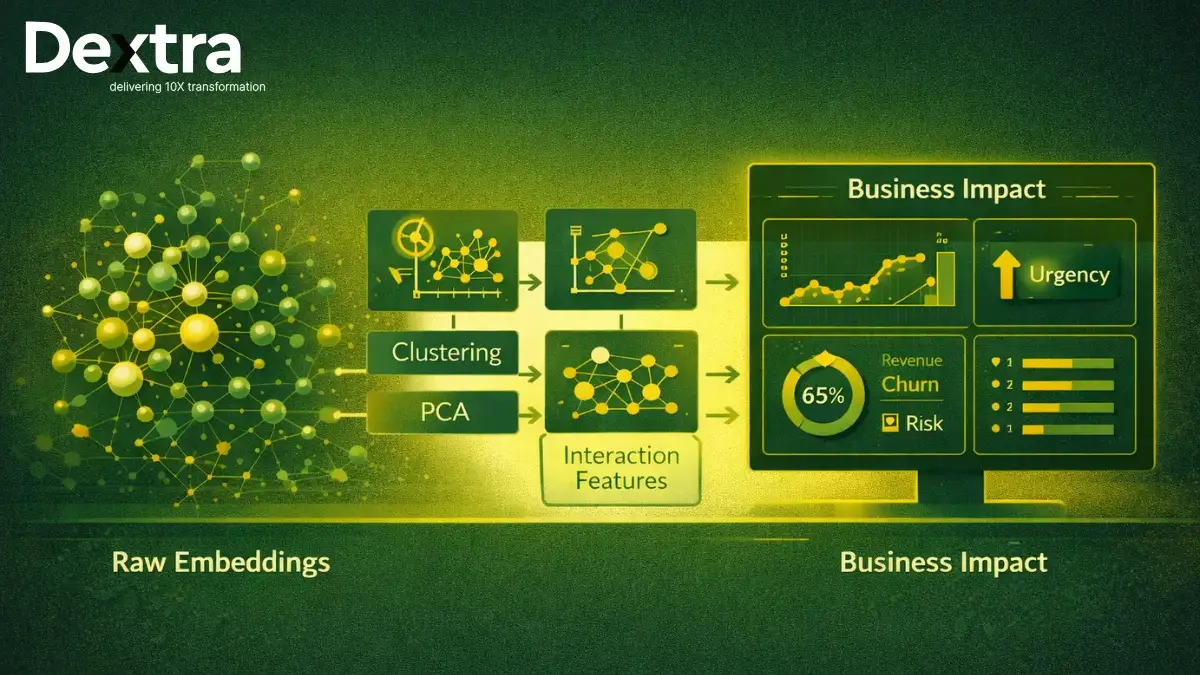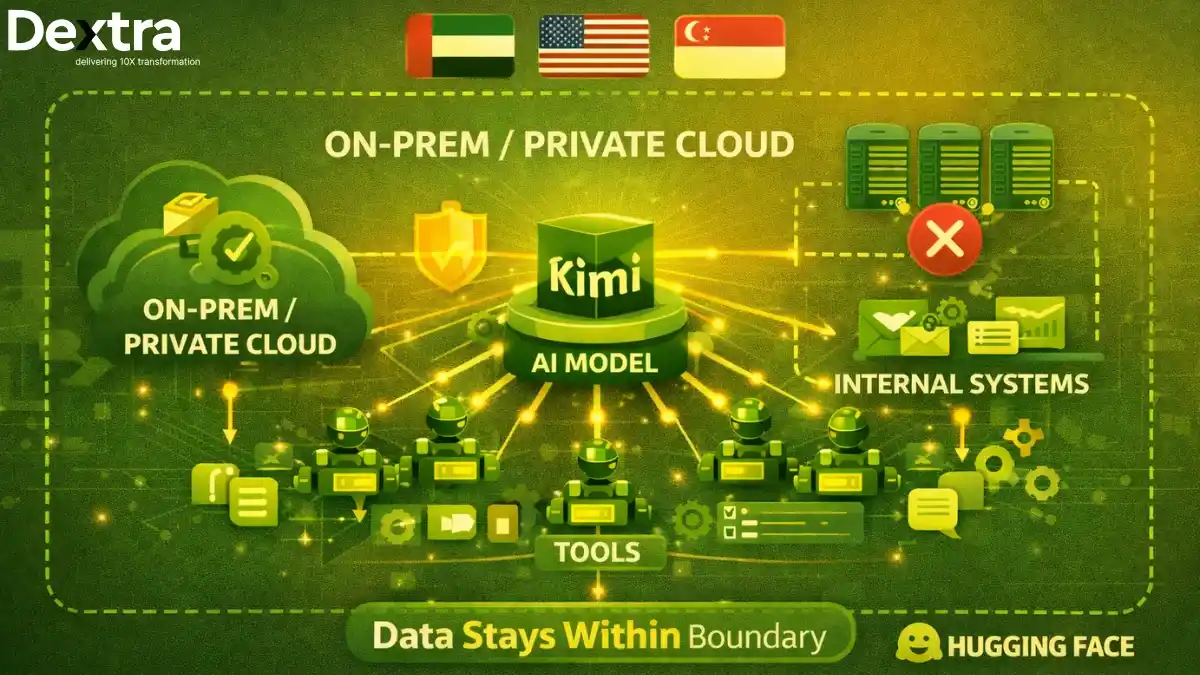AI is taking over the healthcare industry as well and providing many positive solutions to our problems. What was previously thought imaginative is now becoming true with AI transforming how medical diagnosis, patient recordkeeping, and treatment suggestions.
The generative AI market size has been reported to be USD 1.8 Billion in 2023. It is expected to grow with a 32.6% Compound Annual Growth Rate (CAGR) between 2024 and 2032. These estimations show that there is a huge road ahead for generative AI in healthcare, and we are just witnessing its start.
In this article, we will do a deeper analysis of how generative AI works in healthcare industry and what future it holds. But first let’s learn what actually is GenAI.
How Generative AI Works?
Generative AI works by using algorithms and models, primarily based on neural networks, to create new content that mimics human-generated data. These models are usually based on Generative Adversarial Networks (GANs) and Variational Autoencoders (VAEs) trained on large datasets. These datasets teach these models to understand patterns, structures, and features and then produce outcomes that mimic human-level understanding.
In GANs, two neural networks—a generator and a discriminator—work together. The generator creates new data instances while the discriminator evaluates them against real data. Then, the generator improves its outputs by making them more realistic through iterative training.
Similarly, VAEs encode input data into a compressed representation and then decode it back to generate new data. To sum this process up, generative AI uses learned representations from training data to generate new, high-quality content (text, images, music, or other forms of data).
Emergence of GenAI in Healthcare Industry
It all started in the 1970s when AI faced setbacks in healthcare industry. At that time, there was limited progress but high expectations. This led to a period called “AI winter,” which marks a point where the hype for AI became stagnant.
However, advancements such as AlphaFold2’s success in protein folding regained interest in using AI, particularly in healthcare. Today, GenAI and LLMs are being used to improve patient experiences by making clinical decisions easier and quicker.
This technology’s adoption is growing rapidly driven by its potential to change medical practices and operational efficiencies. It is foresighted that the global generative AI in healthcare market is expected to expand substantially by 2032.
10 Uses of Generative AI in Healthcare Industry
Now, let’s explore the best use cases of AI in healthcare that have been benefitting the industry for quite some time.
1) Medical Imaging Analysis
Generative AI can analyze and interpret complex medical images, such as X-rays, MRIs, and CT scans with high accuracy. From this analysis, you can quickly identify any anomalies or hidden patterns in the images that could help in diagnosing certain conditions. AI models can also assist radiologists in diagnosing conditions like tumors, fractures, and organ abnormalities.
2) Drug Discovery and Development
AI accelerates the drug discovery process by predicting how different compounds interact with biological targets. Generative AI analyzes huge amount of and diverse types of datasets of chemical structures. It can identify potential drug candidates and simulate their effects. This reduces the time and cost of bringing new drugs to market and increases the likelihood of finding effective treatments.
3) Personalized Medicine
AI enables the customization of treatment plans based on individual genetic profiles and health data. Generative AI analyzes a patient’s genetic information, lifestyle, and medical history to recommend personalized treatment plans.
These capabilities help doctors to predict disease risk and suggest preventive measures. This approach also improves the effectiveness of treatments and reduces adverse reactions.
4) Clinical Trial Optimization
AI streamlines the design and management of clinical trials to make them more efficient and effective. It can identify suitable candidates for clinical trials, predict patient responses, and optimize trial protocols. This improves the success rate of trials and accelerates the development of new treatments while also reducing costs.
5) Streamlined Healthcare Operations
AI automates administrative and operational tasks in healthcare settings by handling tasks such as scheduling appointments, managing patient records, and processing insurance claims. This reduces administrative burden and allows healthcare providers to focus more on patient care.
6) Virtual Assistants and Chatbots
AI-powered virtual assistants and chatbots improve patient interaction and support. These tools can provide 24/7 assistance by answering patient queries and offering basic medical advice. They improve patient engagement and reduce the workload on medical staff.
7) Restoration of Lost Capabilities
AI aids in restoring lost capabilities for patients with disabilities or impairments through assistive technologies, like speech-generation devices for non-verbal patients or prosthetics with advanced functionality. These innovations improve the quality of life for patients with physical or cognitive impairments.
8) Medical Training and Simulations
AI provides advanced training tools and realistic simulations for medical professionals that can create virtual patients. It can simulate surgical procedures and provide real-time feedback to trainees in a better setup. This will speed up the learning experience, improve skill acquisition, and allow for safe practice without risk to actual patients.
9) Post-Treatment Monitoring and Follow-Up
AI eases continuous monitoring and follow-up care for patients after treatment. It can track patient health metrics by predicting potential complications and providing personalized follow-up plans. This ensures better recovery, timely interventions, and reduces the likelihood of readmissions.
10) Generating Synthetic Medical Data
AI generates synthetic medical data to support research and development while preserving patient privacy. It can create realistic, anonymized datasets that mimic real patient data. These synthetic datasets are valuable for training AI models, conducting research, and developing new medical technologies without compromising patient confidentiality.
Generative AI in Healthcare Examples
GenAI is more common in healthcare than you know and here are some best examples:
Mass General Brigham
Mass General Brigham is a renowned healthcare provider in Boston, Massachusetts. They own two prestigious medical institutions—Brigham and Women’s Hospital and Massachusetts General Hospital.
During the COVID-19 pandemic, Mass General Brigham faced an overwhelming increase in patients and inquiries. Their hotline which is staffed by expert nurses, was always flooded with calls that lead to long wait times and inefficiencies.
AI Solution
To manage this problem they built a generative AI chatbot that was inspired by a similar tool used by Providence Health in Seattle. This AI-powered voice system was designed to handle common COVID-19-related questions, using screening questions developed by the CDC.
This chatbot considerably reduced call volumes which provided patients with reliable information and preliminary assessment quickly. This solution also improved efficiency and allowed healthcare professionals to focus on more critical tasks.
Challenges of Using Generative AI in Healthcare
Using GenAI in healthcare might sound all fun and exciting due to the benefits it brings. But, it also creates some huge challenges like:
- Safekeeping the patient’s sensitive data against security breaches and unauthorized access.
- Compliance with strict health industry regulations such as HIPAA in the U.S.
- Generative AI models can cause biases in their responses that arise from their training data.
- Continuous monitoring and mitigation strategies are required to address and rectify biases.
- The risk of AI generating incorrect or misleading information can negatively impact patient care.
- Maintaining a “human-in-the-loop” approach to validate AI-generated outputs.
- Difficulty in easily integrating AI tools with current healthcare IT infrastructure, such as Electronic Health Records (EHR).
- Keeping compatibility and interoperability with legacy systems.
- Addressing concerns around consent, patient autonomy, and the ethical use of AI-generated data.
- Developing and following strong ethical guidelines and legal frameworks for using AI applications across systems.
Foresighted Future of Generative AI in Healthcare
The future of generative AI in healthcare shows huge potential due to continuous advancements in technology and an increasing need for accessible healthcare services. As AI technology continues to advance, we can expect quicker and more accurate diagnostic tools that can provide personalized treatment plans for individual genetic profiles. The best thing is GenAI can enhance patient interaction through AI-powered virtual assistants, which will give patients both comfort and increase their satisfaction.
Also, AI will streamline administrative tasks that will reduce physician burnout, and enable real-time data analysis. This will provide us with more proactive and preventive healthcare measures. The integration of generative AI with other emerging technologies like augmented reality and robotics will further enhance surgical precision and patient outcomes.
Summary
To sum it up, GenAI shows a promising future ahead in healthcare which will bring us more solutions. But along with these solutions, we will also have to consider how to handle the challenges of using generative AI in healthcare.
Right now, we can keep exploring and experimenting with the combination of AI with other technologies. Also, AI has to be trained impartially to expect the best results in outputs. Until then, we can reap the benefits of current advanced AI technology and solve our medical problems.
FAQs
Will generative AI take over the jobs of doctors and medical staff?
No, generative AI is designed to mimic and assist healthcare professionals by automating certain tasks. It helps with tasks such as data analysis, diagnostics, and administrative duties so that medical staff can focus more on patient care.
Does using GenAI in healthcare pose threats?
Yes, using GenAI in healthcare shows certain threats like data privacy concerns, potential biases in AI models, and the need for regulatory compliance. That’s why we can’t fully use GenAI without responsible use and human oversight to mitigate these risks.
Is AI biased in healthcare?
It is imminent that AI can be biased in healthcare if it is trained on non-representative or biased datasets. This can lead to differences or incorrect information in its outputs.

